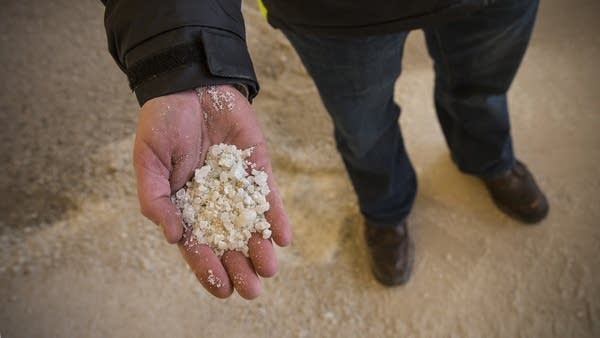Spanish-language training aims to curb overuse of road salt

Over the last few years, MnDOT has been cutting back on using salt to melt ice on the state’s highways. MnDOT also offers "smart salting" training for property managers who maintain parking lots, sidewalks and driveways.
Paul Middlestaedt for MPR News 2017
Go Deeper.
Create an account or log in to save stories.
Like this?
Thanks for liking this story! We have added it to a list of your favorite stories.


